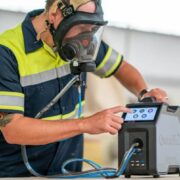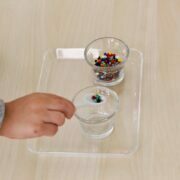Drug rehabilitation involves a vast spectrum of strategies and techniques designed to free people with the problems of drug addiction from addiction and equip them with the tools that enable them to live healthy and rewarding lives. Generally, these methods address the flaw’s physical, psychological, emotional and social aspects.
Here, we will discuss some of the most common approaches to Los Angeles drug rehabilitation:
Medical Detoxification: The first contact with rehabilitation will likely be detox, where the body is freed of the drug you are addicted to. This, in turn, can be in conjunction with withdrawals, which can vary from non-specific and manageable discomfort to severe complications. The medical detoxification process is conducted by healthcare providers who can give medicines, which may reduce withdrawal symptoms and ensure the individual’s well-being.
Behavioral Therapy: Behavior modification is one of the therapies directed at drug addiction. A range of therapeutic interventions (for example, CBT, DBT, and MI) assist in revealing and changing wrong perceptions about substances and to help behavior modification related to drug abuse. They moreover provide us with coping procedures for the management of cases of craving, trouble excitement, and drug use stimulations as well.
Individual Counseling: Individual one-on-one sessions are created to do the work in a confidential setting in which the person under treatment can freely speak about the things that most likely contributed to their substance abuse problem, for example, unsettled conflicts from the past, current mental illness, or interpersonal issues. A trained counselor or therapist can assist clients in self-reflection. Hence, they make goals for recovery and help them discover and develop strategies for lifelong abstinence.
Group Therapy: By placing them in the group forum, the individuals who together cope with the same issues related to addiction can gather. In these sessions, participants can get support from peers, a sense of validation, and inspiration, i.e., these groups are a great platform for getting active and meeting others experiencing similar situations. The collective setting of group therapy provides a feeling of belonging for members, and they all understand that despite the problems, they are not alone. It also provides accountability and interpersonal skills development.
Family Therapy: Substance dependence cuts not only on the person who suffers from that but also on other people who live, work, or are close to the person. When the whole family takes part in the therapeutic process, which includes several objectives, we have to deal with the interfamilial issues that may arise and use psychodynamics to heal dysfunctional communication and improve communication. After that, to rebuild trust and strengthen the family bond. One of the major advantages of family therapy is that it can generate a blame-free environment that presets the healthy environment and the healthy atmosphere through which recovery takes a better focus. It also helps to reduce the chances of relapse.
Medication-Assisted Treatment (MAT): MAT is successful in offering individuals a medication combination plus behavioral therapy along with counseling to enhance the treatment of substance use disorders, that is, opioids, alcohol, as well as nicotine in particular. Medications such as analgesics that suppress those areas of the brain referred to as endogenous opioid receptors, i.e., methadone, buprenorphine, and naltrexone, can be given to curtail the habit of using substances, relieve the symptoms of withdrawal, and prevent relapses. Consequently, the science of medical treatment often focuses on tailored treatment options for a patient whose individual health status is taken as a reference.
Holistic Approaches: The whole person who has become drug-free can boost their physical and mental health, and thus, the spiritual recovery precisely respects the features of the spiritual bent through the individual substance use disorder. The options may include yoga, meditation, acupuncture, massage, art therapy, or even grooming animal-assisted therapy. A treatment plan that considers the holistic approach its primary element can not only reverse one’s emotional imbalance and help reduce stress and strain but also bring a deeper self-investigation and bring people closer to their inner emotions, which in turn will complement traditional regulations.
Residential Rehabilitation: Inpatient or residential rehabilitation programs offer 24-hour intensive care in somewhat close, controlled surroundings. The duration that the residents will spend at the treatment facility is individual-dependent, somewhere between a couple of weeks and three to six months. Residential programs provide a structured daily schedule of therapy activities, group-based events, recreation places, and life skill training that work for recovery through support and immersion in a creative and supportive environment.
Outpatient Rehabilitation: Outpatient rehabilitation is considered by many patients as the most preferred treatment setting as it allows them to attend therapy sessions while living at home, though only part-time. Outpatient programs provide comfort and allow the individual to keep up their usual activities, work or school, without a need to come into the treatment facility. These programs include patient counseling services, group therapy, medication management, and educational workshops.
Final Thoughts
Drug rehabilitation includes a multifaceted philosophy and supporting ways of treatment delivery designed to tackle the multidimensionality of the reason behind drug signs. Effective treatment typically means an integrated combination of medical, behavioral, social, and holistic modalities personalized to address specific needs and individual personality traits. Through identification and addressing the main factors of the addiction as well as by providing comprehensive support, the process of rehabilitation from drug addiction strives to be able to equip the individual with the power to recover successfully, restore their lives, and also achieve long-term recovery accomplishment.














Comments